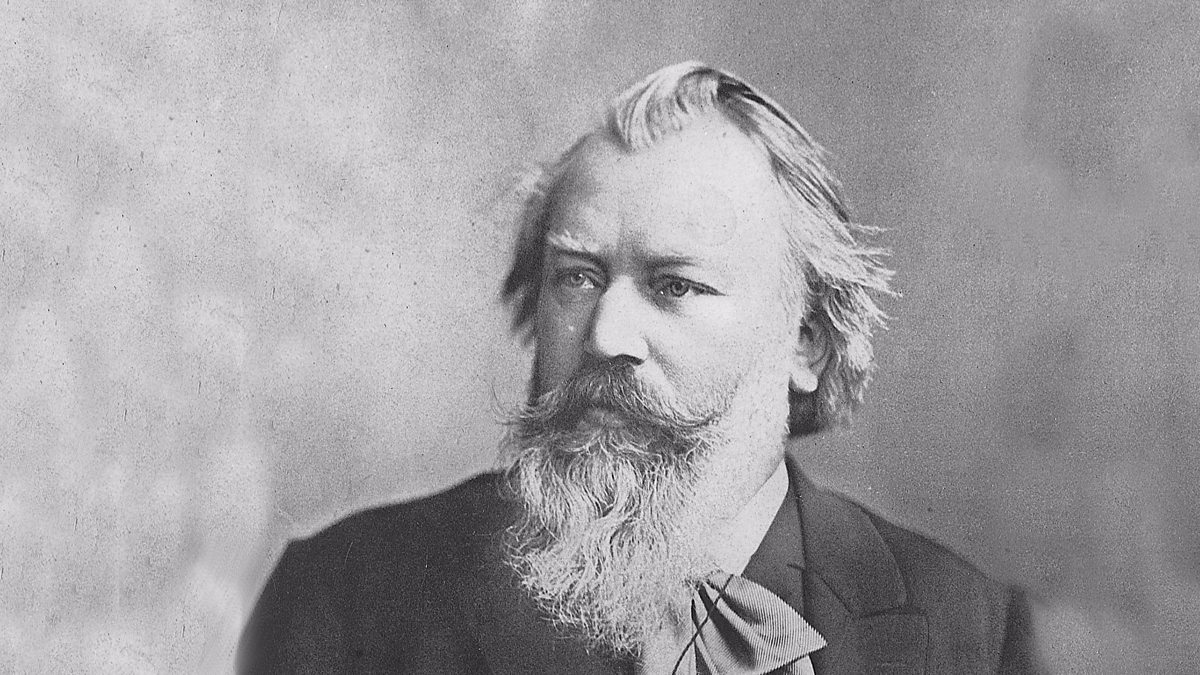

Brahms’ Requiem
On Good Friday, 1867, a complete version of Johannes Brahms’ “German Requiem” premiered at Bremen Cathedral.
04/7/23
John Stonestreet Glenn Sunshine

On Good Friday, 1867, a complete version of Johannes Brahms’ “German Requiem” premiered at Bremen Cathedral. (Brahms would add an additional movement to the piece in 1868.) The “German” in the title is notable.
The text for traditional requiems came from the Catholic Requiem Mass and were thus in Latin. Brahms, however, rejected the language and the structure and content of the Requiem Mass. Instead, he used texts from Luther’s translation of the Bible, which he had learned growing up in the Lutheran Church.
And yet, by most accounts, Brahms was “a freethinker” rather than a believer. For example, the German Requiem does not contain texts that deal with salvation through Christ. What then, are Christians to make of his masterful choral and orchestral music?
For background, the piece seems to have been inspired by the loss of people close to Brahms. In 1856, roughly 10 years before the composition premiered, Brahms’ close friend Robert Schumann died. Some of the music composed by Brahms in the wake of his death was later incorporated into the Requiem. In 1865, Brahms’ mother died. Her loss seems to have been a strong impetus for the work.
The traditional requiem begins with a prayer for the dead: “Grant them eternal rest, O Lord, and may perpetual light shine upon them.” By contrast, the German Requiem begins with a quotation from the Beatitudes: “Blessed are those who mourn, for they shall be comforted.” This focus on how life is lived sets the tone for five of the seven movements, each of which move from mourning and anxiety to comfort.
Although the texts do point to God as the source of comfort, Brahms refused to include verses dealing with salvation. Karl Reinthaler, who conducted the piece’s premiere in Bremen, asked Brahms to include more explicitly religious texts. He refused, saying,
As far as the text is concerned, I confess that I would gladly omit even the word German [from the title] and instead use Human; also with my best knowledge and will I would dispense with passages like John 3:16. On the other hand, I have chosen one thing or another because I am a musician, because I needed it, and because with my venerable authors I can’t delete or dispute anything. But I had better stop before I say too much.
This disturbed Reinthaler. So, in order to point clearly to the believer’s source of hope, he chose to add “I Know that my Redeemer Liveth” from Handel’s Messiah to the Good Friday performance.
Brahm’s refusal to include texts that talked of Jesus or salvation revealed his humanistic orientation. In fact, Antonin Dvorak, Brahms’ protégé and a devout Catholic, commented about his mentor, “Such a man, such a fine soul—and he believes in nothing! He believes in nothing!”
And yet, when Brahms wanted to offer comfort to the grieving, he turned to the Bible. The German Requiem contains an impressive collection of Scriptures, including verses from Psalms, Isaiah, John, 1 Corinthians, Hebrews, James, 1 Peter, and Revelation, as well as the Wisdom of Solomon and Sirach from the Apocrypha.
Consider the text from the first two verses:
- Blessed are they that mourn,
for they shall be comforted.
They who sow in tears,
shall reap in joy.
Go forth and cry,
bearing precious seed,
and come with joy
bearing their sheaves
- For all flesh is as grass,
and the glory of man
like flowers.
The grass withers
and the flower falls. Therefore be patient, dear brothers,
for the coming of the Lord.
Behold, the husbandman waits
for the delicious fruits of the earth
and is patient for it, until he receives
the morning rain and evening rain. But the word of the Lord endures for eternity.
The redeemed of the Lord will come again,
and come to Zion with a shout;
eternal joy shall be upon her head;
They shall take joy and gladness,
and sorrow and sighing must depart.
Brahms obviously found consolation in the Bible, though he rejected its fundamental message. Just as God spoke through the pagan Balaam, even as he refused to obey God, Brahms’ Requiem gives beautiful voice to the words of Scripture despite his rejection of Christ. For all those who do know the way of salvation, the German Requiem not only provides a magnificent biblical setting to offer comfort and consolation, but also a place from which to point to the wider truths of where hope is truly found.
This Breakpoint was co-authored by Dr. Glenn Sunshine. For more resources to live like a Christian in this cultural moment, go to colsoncenter.org.
Have a Follow-up Question?
Up
Next

Related Content

© Copyright 2020, All Rights Reserved.













